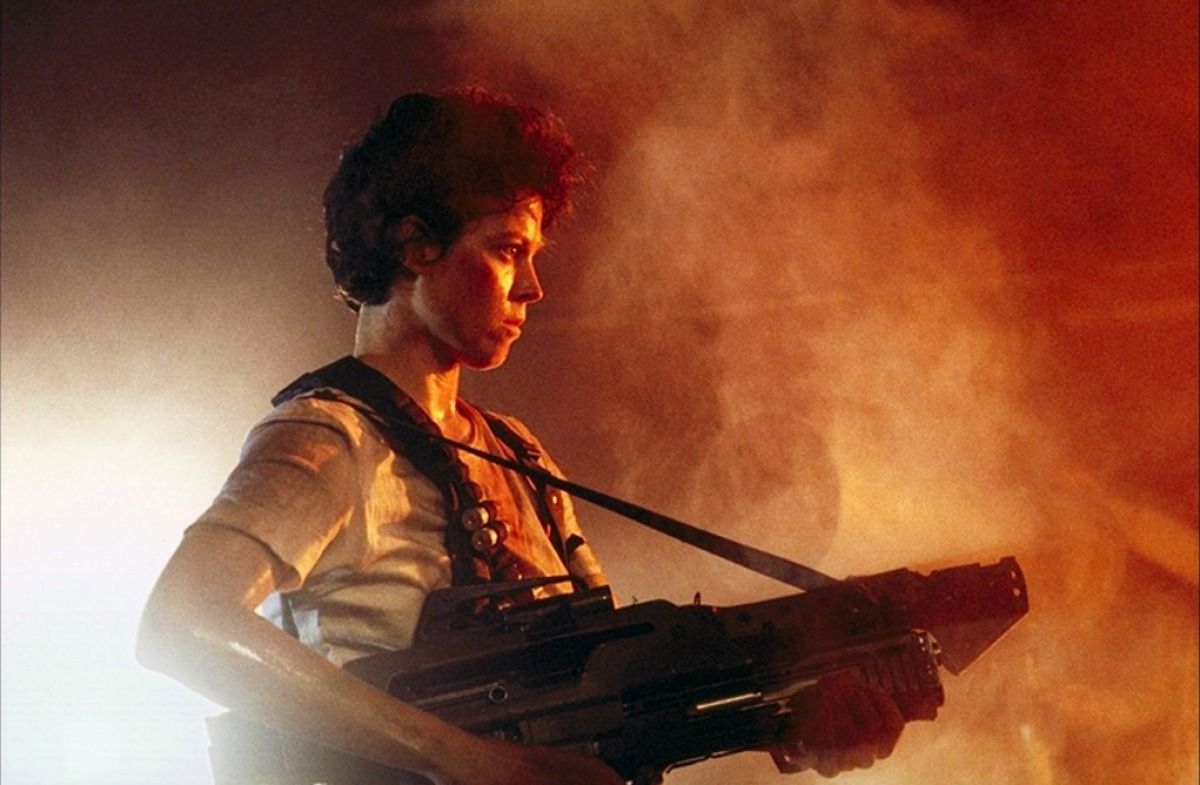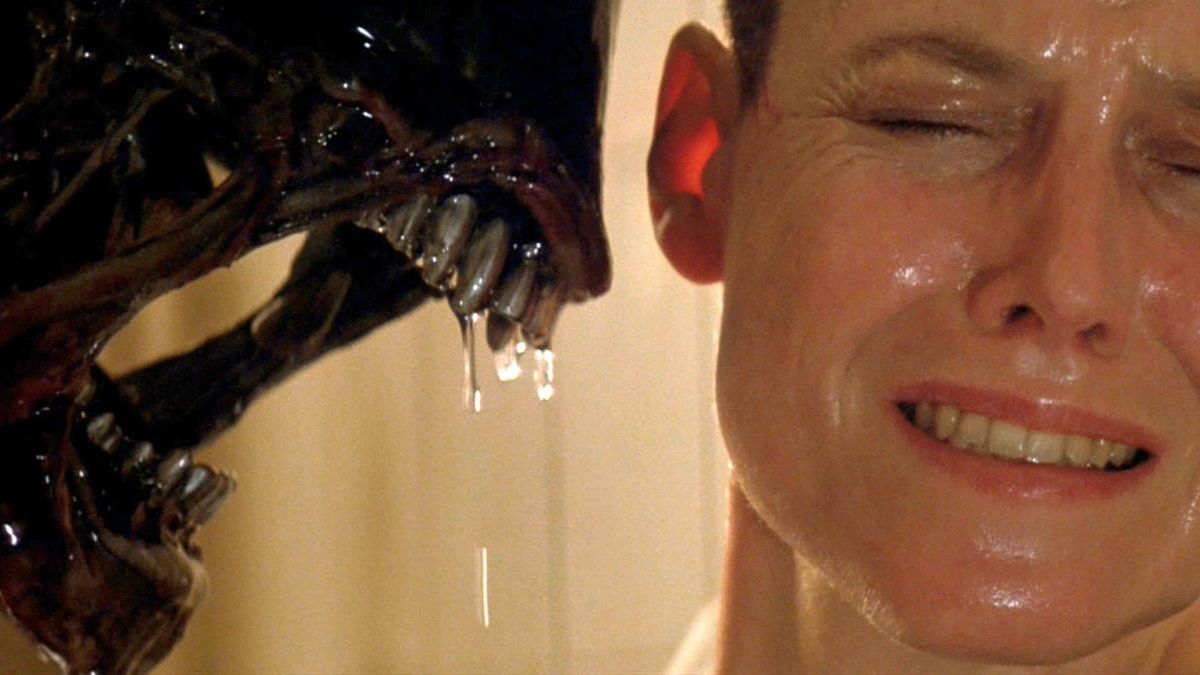When considering film's most influential female leads, Sigourney Weaver's portrayal of Lieutenant Ellen Ripley often comes to mind. In Ridley Scott's 1979 science-fiction horror film, Alien, Ripley defies societal expectations to become not just a popular female protagonist, but one of the most popular sci-fi protagonists of all time. The Alien film franchise is characterized by Ripley's unparalleled strength, intelligence, and determination.
In an era of action films defined by brutish male protagonists, Alien's initial release not only shattered pop-culture norms and expectations but garnered financial success. With a budget of $11 million, the first installment raked in nearly $80 million at the box office. Although the Academy Award-winning franchise did not set out to create feminist films (or perhaps it did), its feminist themes nevertheless paved the way for women in film and female audience members. Alien's groundbreaking concepts maintain Ripley's relevance today.
Defying Traditional Gender Roles
Feminists praise Ripley's character, often regarded as action's first female lead, for her undeniable strength. Her physical endurance and mental determination are legendary in the world of film. Though objectively unimportant by comparison, her physical appearance and identity as a woman from a feminist perspective are important to remark upon as well. Scott deliberately chooses to spare Ripley of traditional hyper-femininity; she does not wear makeup, her hairstyle is plain, her dress is neutral and uniform with that of her male crewmates, and her gender is not an object of focus. Her male counterparts do not make advances on her, nor is the plot at all focused on romance. Ripley is portrayed as respectable and independent. She is defined not by her appearance or sexuality, but by her character.
Scott's final decision to have a female protagonist in itself defies gender norms typical of films of the late-70s. Not once throughout the series is Weaver's character depicted as a "damsel in distress," or a woman who needs to be rescued. While the creators allow Ripley realistic moments of genuine fear, she perseveres nevertheless through her own resourcefulness and willpower. As the sole remaining survivor of the Nostromo in Alien, she does not need to rely on men in order to overcome the terrifying Xenomorph. She even manages to rescue her cat, Jones.
Ripley's Role as a Protector
Another means through which the Alien franchise rejects tradition is that a woman is assigned the role of protector. Alien shifts the perspective of an audience accustomed to seeing men portrayed as heroic protectors, especially in action films. Although Ripley is only able to save herself and her beloved cat in the first film, she does not do so without first putting forth a valiant effort to keep her team alive.
In James Cameron's 1986 film Aliens, the franchise's second installment for which Weaver received an Academy Award nomination for Best Actress, Ripley has been awakened by the Marion's crew after 57 years of hyper-sleep. She warns them of the violent alien presence to no avail and ends up in the position of protector yet again when she accompanies them to a colony with which they have lost contact under suspicious circumstances. Incidentally, the only colonist to survive is female, a girl named Newt.
Newt's circumstances parallel Ripley's experience in Alien, and she takes on a role as Newt's surrogate parent. After being in hypersleep, Ripley no longer has a family on Earth to motivate her survival. She instead forms a new family on the old mining planet LV-178 and is determined to protect them from the Xenomorphs despite their initial doubt. Although the men underestimate the aliens' capabilities, Ripley knows better. Because of her designation as protector and renewed purpose, Aliens is Weaver's favorite installment. Her determination keeps the Corporal (Michael Biehn), Newt, and herself alive.
In the franchise's third installment, Ripley commits the ultimate sacrifice, thus reinforcing the idea that Ripley's self-preservation has never been a selfish act. She always does what she can to save those around her. In Alien 3 (1992), directed by David Fincher, Ripley yet again finds that she and a facehugger are the sole survivors after her ship crashes on a planet inhabited by a penal colony. She has undergone incredible loss and persevered through what seemed impossible.
In Alien 3, however, Ripley realizes that she has been impregnated by the facehugger. She realizes that, because she carries alien life, the aliens will not attack her. Even with the knowledge that her death is finally upon her, she chooses to exploit her condition in order to protect the inmates. When Ripley realizes the inevitable, she ensures that the inmates will at least have a chance at survival. She then decides to take her own life, as it is the only way to destroy the evil growing inside her. The notion of self-sacrifice is a motherly instinct, but the action-packed heroism is traditionally masculine. Ripley is thus an inherently feminist character; she recognizes and utilizes her strength, yet she does not forget her compassion. By going out on her own terms as a means to save others, she still represents a pillar of strength.
The First "Final Girl:" A Legacy of Female Strength
The "Final Girl," a term that Berkeley professor Carol J. Clover coined in her book Men, Women, and Chainsaws, has become a well-known cliché and film trope today. The trope is specific to slasher horror films in which the killer or monster has killed the other archetypal characters, leaving a strong, female character as the sole survivor. However, many final girl iterations are constructed upon sexist stereotypes.
In many horror films and shows that feature a final girl, there is almost always a female character to contrast her character; the final girl is generally a brunette, and often virginal or of "pure quality." Meanwhile, her counterpart (either "The Cutie" or "Damsel in Distress") is often depicted as a flirty, promiscuous blonde who is somehow deserving of her fate due to her inclinations, or "character flaws."
The satirical horror film Cabin in the Woods, in which Sigourney Weaver is pointedly cast as the director of the horrific artifice that plagues the archetypal characters, demonstrates this problematic structure and highlights its sexist nature. In being the first of her kind, Ripley subverts what has become of the Final Girl trope and its sexist implications. In Alien, Ripley's crewmates are male, and none are deserving of their horrific deaths. She simply has the resolve to protect and survive. This is why Ripley's character, and the Alien franchise as a whole, sets itself apart as feminist film.
Through a feminist lens, Ellen Ripley is the ideal hero. Ripley's character is synonymous with courage; she is a resourceful, intelligent, brave fighter. She also expresses vulnerability in the form of compassion toward others, including Jones, and fear, through which she persists regardless of the terrifying scenarios she endures. She manages to survive a horrifying creature by outsmarting it where her male counterparts fail to. Ripley does not succumb to her struggles, as one might expect from a stereotypical female character, which is part of why the Alien franchise transcends genre and is considered a pioneer in feminist film.
The Alien franchise and universe owe its success to its original protagonist and hero (and Sigourney Weaver), a woman whose character is very well-known in popular culture. The Alien films are not just horror science-fiction movies, but feminist commentaries that push the boundaries of traditional gender norms in the world of film.




